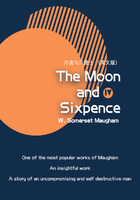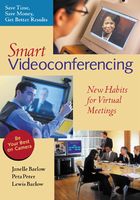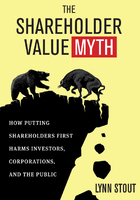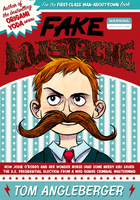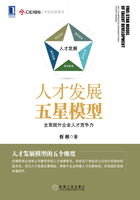There may be places in the world that are more obscure and isolated than Blanding, Utah, but I'll bet it's on the short list. It's a very nice town—it doesn't have that aura of hopelessness you get from small towns in decline. It's just small and far away from almost everything. It's located where the four least populous corners of Arizona, Colorado, New Mexico, and Utah meet. They meet there, but they haven't done much with the place. The town does get some tourism from nearby Moab and the Navajo and Ute reservations, although in this part of the country, nearby means not too much more than an hour's drive. I may well be the only person who ever went there just to visit its nursing home.
I was visiting the nursing home as part of a larger research project on its supporting company, a healthcare group based in California. The CEOs agreed to keep the company anonymous to avoid the odor of self-promotion and for other reasons mentioned in the preface.[1] Here I will call it Healthcare Group, or HG. HG was founded on the ideas of the Arbinger Institute, a management consulting company. Arbinger promotes a unique leadership philosophy based on the singular importance of seeing people as true and valuable people in the fullest sense.
As part of its commitment to this philosophy, HG views its “rank and file” as no less capable than managers or executives, with all kinds of reasons for choosing their careers. Maybe they didn't want to do office work, loved working with people, felt called to healthcare, or simply didn't speak English well enough for executive work. None of those reasons for working on the ground floor of nursing homes (or hospitals, restaurants, shops, or whatever) makes these people any less capable of making good decisions, and their proximity to the residents makes them more responsive to immediate needs. So this company's leaders try to mandate as little as possible from the executive level and instead, as they put it, “locate responsibility where it belongs”—with the staff members doing the actual work. They assume their people are competent and insightful and let them shine. This approach has worked: the company has been extremely successful in providing consistently excellent care and has an outstanding reputation in its industry.[2]
I spent most of my research time in California, in San Diego and Los Angeles and Sacramento, where HG's support center and most of its facilities are based. How I ended up in Blanding, I hardly knew. One of HG's middle executives, a man named Jeremy, talked me into it while showing me around some other nursing homes—more properly called skilled nursing facilities, or SNFs. (People really do pronounce it “sniffs.”) Jeremy is a young man with dark eyes and hair and the quick, energetically earnest manner of a motivational speaker or Zumba instructor. When I protested that I didn't have room in my research schedule to travel to and from Blanding, he merely called my bluff and rearranged my schedule for me (including half a day for exploring Arches National Park) with the air of someone handing me a valuable gift. So I went, comforting myself that if it was a waste of time, at least I could get revenge by complaining about Jeremy in the book.
He's off the hook, though. Jeremy was right; the payoff was more than worth the trouble. As a tourist site, the Four Corners area is pretty incredible, and Arches at sunset will make you want to quit your job and take up poetry. The images you've probably seen in calendars and in Western movie backdrops do not capture the stunning wildness of the reality. I'd lived most of my adult life in Manhattan, and this vast red rock desert had none of what passed for value in that glass-and-steel cage. Quiet and wild and ancient, the striped hills loomed over the meandering highway in judgment of the shallow instantaneity of modern life. At long intervals there would arise from the ground a massive red stone arch or obelisk carved by wind and rain long ago, when Manhattan and Los Angeles were swamplands. It was humbling to spend the afternoon in the presence of such towering antiquity.
What the Shift Looks Like
I arrived at the nursing home early the next morning. As I passed through the standard institutional glass doors and headed down the nondescript institutional hallway, I assumed the astonishing and humbling part of my trip was over. Little did I know.
In the hallway, a worker was using a large floor polishing machine to remove tape residue from the floor. No one else was around, so I paused and began to ask him questions over the roar of the machine. After a few minutes he finally turned it off and leaned against the wall to talk. “I didn't mean to interrupt your work,” I apologized, but he shrugged me off. He wanted to talk, not with the air of getting out of work, but like nothing else he could be doing was more important than helping me.
His name was Jason. He looked to be about my age, but he had a gaunt, weathered aspect that may have meant he was younger than I but worn out. His clothes were dark and clean, his manner diffident but friendly. His primary job was running the floor machine. It was run every day in all the hallways and large rooms, and that's what he was paid for; that was his entire shift, all day, every day.
But here's what I learned about Jason from talking to others who work with him: He does more than he's strictly paid for. He knows every single last resident of the facility. Every day Jason can be seen pushing wheelchairs to and from dining and activities or carrying blankets to an old lady who caught a chill or filling a water jug for an old man who can't fill it himself. None of these tasks are technically his job, but they are part of the job to him.
Jason told me that all his friends, who all had similarly low-skilled jobs, lived their lives for the weekend; they went to work mainly so they could party and relax from Friday night to Sunday. But for him it was the opposite: the weekend was the space he had to fill before he could get back to work. He looked forward to Mondays the way other people look forward to Friday night, with excitement and anticipation and impatience. This job was his lifeline, his center, how he filled the empty yearning places of his heart.
This is an experience we all long for, isn't it? A work environment we look forward to going back to with excitement instead of dread is the holy grail of modern life. And when we are dissatisfied with our work, all the books and bloggers urge us to find another job or devote our time to other tasks, on the assumption that some particular as-yet-unknown activity will enliven us and we just have to find it. But this man doesn't have a better set of tasks than his friends; he's not getting fame or riches or even necessarily upward career mobility. He cleans the floors. Specifically, he cleans the floors in a nursing home. Yet he's happier and more fulfilled than so many of us. So what gives?
“This is my family,” he explained. This nursing home, the residents he's grown to know so well, the other long-term employees with their friendliness and appreciation, the endless opportunities to help someone in need—they have formed the family he otherwise lacks. He comes to work to be home.
This obscure man, working in an unglamorous job in an unglamorous facility in a small town nobody's ever heard of, is happier, more energized, and more fulfilled at work than literally anyone I ever met in Manhattan. He tirelessly devotes his energies to caring for the old and infirm and to supporting his coworkers. You might describe him, dismissively, as just a bachelor in a dead-end job, but if you did so you would be utterly blind to the impact his kindnesses and depth of feeling have on the people around him. I was feeling pretty cool to be a Manhattanite taking research trips to Los Angeles, and I discovered something in that (very clean) hallway: it is humbling to be in the presence of such towering goodness.
The story of Jason stands in pretty perfectly for the highest aspirations of HG and its distinctive philosophy: to try to create in each nursing home an environment where the staff see one another and their residents as people in the truest, deepest sense. When that happens, the housekeepers and maintenance workers, the nurses and nurse's aides on every shift, the business office and medical records personnel, the facility's administrator and director of nursing, the aged residents in every room—all the people who spend their days and nights together in that facility—come together to form an environment that feels like family.
I don't mean the griping, infighting sort of family either. I'm talking about the good kind of family, where everyone has a voice, everyone has a place, and everyone yearns to come home for the holidays. Phil, one of the founders of HG, described this as “the rich, sweet humanity we all long for”—a place where people are kind and mutually helpful and forgiving and they work hard for one another.
HG works to build this kind of environment by trying to help its employees shift from the typical ways of seeing and engaging with others to a way of seeing others that takes their full humanity into account. This shift changes everything—from how we see and judge what others are doing to how we see ourselves and even to how others respond to us.
It's not obvious to most of us that this kind of shift is needed or possible or so profoundly transformational; it wasn't obvious to me when I started. But I saw environments that felt like family to the people in them; I met people who saw others as true people and loved them and brought out the best in them. In fact, I saw many such places and met many such people, and this book will tell their stories. The experiences I had with them led to my own profound shift, which made it possible for me to feel this “rich, sweet humanity” in my own home and my own marriage. I cannot overstate the effect of the shift on my own life: indeed, the whole world changed when I did.
Now let's be clear: not everything HG does as a company is right, not every facility achieves that family atmosphere, and not every employee is as happy as Jason. If you wander at random in an HG nursing home, you cannot expect that everyone in it (or even anyone in it) will be devoted to his or her coworkers and residents and living this joyful way. The facilities aren't all equally good and the employees aren't all equally devoted. But for our purposes, even if perfection were possible, it wouldn't be the point. What matters, what changed my life, was seeing that this way of living was even possible—and that it was possible for everyone. Seeing people as true people and engaging with them this way does not require any particular type of personality, any particular education level, any particular kind of job. Anyone, however shy or gruff or awkward, doing any work, however maligned or physically demanding, can interact with others in a way that truly honors them—or not.
One final caveat: even at our best, we humans are only human. In one facility, the certified nursing assistants, or CNAs (nurse's aides, we used to call them—the ones who do most of the dirty work of moving and cleaning and showering and changing the residents) were unhappy and griping. Not all of them but a substantial minority complained to me that they were frustrated because other employees frequently took days off and left these CNAs, who couldn't afford to take a day off, shorthanded. When they were shorthanded, they didn't have time to spend with the residents, whom they loved and who gave meaning to their work. They'd built up a lot of resentment.
Later that day I met their supervisor, a woman named Francie with a gruff face but, it became apparent, a gentle heart. I asked about her team of CNAs, and she told me feelingly how hardworking and fabulous they were and how much she loved and appreciated them. So I asked her how she demonstrated her appreciation, and she answered proudly that she always let them take days off, anytime they wanted, without giving them flack.
So there Francie was, genuinely trying to honor her staff and unwittingly contributing to the very problem that made their job hard. It's kind of funny but heart-wrenching at the same time. Nobody was being a jerk, everybody was trying to do good work and care for others, and yet it had all gone sideways.
People are people; our capacity for making mistakes is as infinite as our capacity for greatness. Nothing I say in this book will guarantee perfection or anything close to it. But the lessons matter anyway because even when things do go sideways, as they will, sideways is better in a place where everybody is trying to do good work and care for others, where good intentions have misfired, than in a place where it's every man for himself. So what we will see is not perfection but something far better than that: ordinary people forgetting themselves in helping other ordinary people.
Can It Work for You?
Of course, I know what you're thinking: This is all very lovely, what a pleasant idea, but it could never work in my industry/company/office/family, not in the real world, not with the struggles I face. That's certainly what I thought when I started this book.
I don't like the term midlife crisis—it's so overused and generic—but a person without that prejudice might well have used the phrase to describe me at that time. My husband, Zach, had just lost his business and left us with debt and nothing else to show for it except the need to leave our home of eleven years. I didn't blame him, not exactly, but I hated the way he acted about the whole situation and hated his apparent lack of appreciation for the sacrifices I'd made. We fought interminably and with intensity. We had money problems. We had recently had a surprise baby whose timing meant that I had to see the words “advanced maternal age” printed all over my prenatal paperwork and whose arrival stopped me from pursuing the freedom of divorce. Our eldest child, barely an adult, dropped out of high school and chose to stay behind in New York when the rest of the family moved to Illinois, a fact that I know you just judged me for. It seemed that every aspect of my life was tainted by failure and misery. No sweet-sounding phrases or motivational posters of red rocks could change the dispiriting circumstances of my life.
But my life did change. It changed immeasurably, for the better, without any meaningful change in my circumstances. It changed unexpectedly in deep and messy and wrenching ways that weren't always welcome. So when I describe the tremendous shift in perception and relationships that occurs when we stop seeing people as objects and start seeing them as people, it might all sound a little bit too nicely packaged and optimistic and theoretical. It's not going to happen quite the way you expect, if your experience is anything like mine; the shift comes unintuitively. But we'll learn about it and see how spending time in facilities like the one in Blanding and meeting people like Jason shifted me.
We will come to understand that seeing people as people is not about sweet, inspiring phrases and empty words of manipulative appreciation. It's about the reality of living and working with human beings in all their glory and in all their ugliness and seeing what's true about them. It's about grunt work and paperwork and the day-to-day running of a business, an office, a home. The following chapters will contain more than one story about cleaning up feces; there's nothing soft or shallow or empty about what HG is trying to do. Its operating philosophy cannot be disentangled from the solid, blunt difficulty of being an imperfect person surrounded by imperfect people. And it focuses on creating a shift from seeing people as objects to seeing them as people, a shift so profound it changes everything.
Seeing people as people is an idea so simple you'll swear you've heard it before but so profound you'll never stop learning from it. It's an idea that looms over all the book-of-the-month trends and piecemeal fixes for unhappiness like a red stone tower in the sandy desert, an idea that opens up the possibility that your life and work, even if they started out as depressing as mine, can be full of love and joy.
This book is written to show how living in a way that honors people changes everything for the better—from efficiency and productivity to meaningfulness and purpose. It shows how to begin seeing others truly and how to keep doing it. And all of this plays out in the unlikeliest of places, with the most forgotten people in the most despised lawful industry in America.
If you're willing to rearrange your schedule and join me there, the payoff will be worth it.
注释:
[1]One thing we wrestled with in deciding to keep the company anonymous is the fear that being unnamed would make the company's identity more intriguing than it actually is. In reality, nobody outside the local industry has ever heard of this small regional company anyway; like many nursing home providers, which emphasize the responsiveness of individual facilities to their local environments, as of this writing it doesn't even have a company website. But because all the stories and details herein are true, the company is easy to identify if you are so inclined.
You will find that although the company has a unique style that differentiates the executives from other nursing home owners, the people who provide direct care in nursing homes are very similar across different companies. The executives of the real company I'm writing about think that this consistency among direct care staff means the entire industry can easily adopt the caring management philosophy discussed herein. They do not want to give the impression that the results we talk about are present or possible only in their own company. Their core belief holds that the direct care staff in most facilities are already (mostly) seeing their residents as people and that therefore the seeds of improvement have already been planted.
When I asked Toby, the highest ranking executive at the time, if he worried that this book describing HG's philosophy might cost the company its competitive edge, he shrugged me off. “I'd rather see the whole industry improve,” he told me.
[2]One handy and reliable measure of quality for skilled nursing facilities is the ratings assigned by the Centers for Medicare and Medicaid Services (CMS). Anyone can check the rating and performance of any certified skilled nursing facility at
In 2016 this company's star rating average was 4.2 on a 5-star scale; the average score in California is 3.7. It also performs better than the national average on 15 out of 17 quality measures, performs better than California averages on 12 out of 15 measures, and has a hospital readmission rate of only 15.67 percent compared to a national average of 22.6 percent. (These data come from internal documents provided to CMS.)
Possibly more telling, I spoke to Jim H. Gomez, the CEO and president of the California Association of Health Facilities. He confirmed that the company I call HG is one of the best providers in California and that it has a great reputation in the industry; he was not surprised I was writing a book about it.

